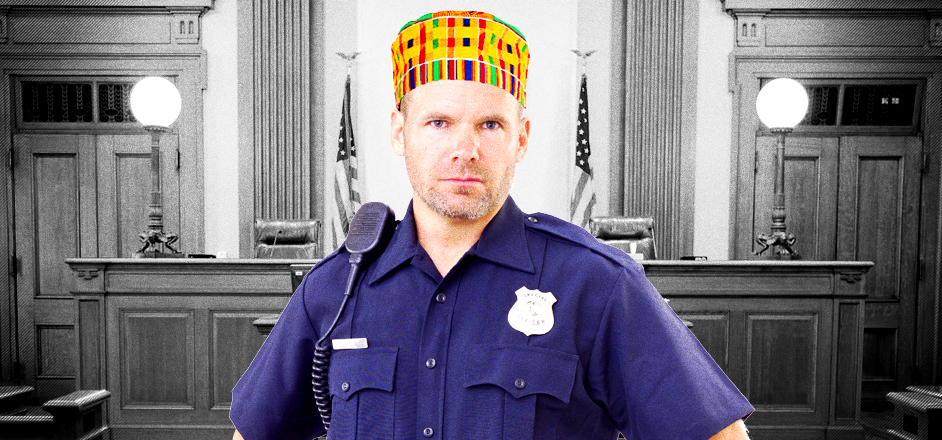For years, Ancestry.com has offered us the opportunity to uncover the secrets of our heritage. This can be a blessing, allowing us to find long-lost billionaire siblings who own a beach house in Ibiza; or it can be a curse, revealing that our racist grandpa learned his insane slurs from a father who fought in the Civil War for the Confederacy.
Cleon Brown, a Michigan police officer, hoped for a happy ending to his ancestry testing, but an 18 percent trace of African descent left him feeling blacklisted from the boys in blue. Following Brown’s announcement of his black heritage, his colleagues starting treating him differently, the officer alleges.
As Brown passed by a group of co-workers, for example, they’d pump their fists and whisper “Black lives matter!” Brown’s boss, the police chief of the force, mockingly called him “Kunta,” the name of a cliched black character from the famous novel, Roots. This past Christmas, when each officer had a personalized stocking on the department's Christmas tree, a colleague stuffed Brown’s with a black Santa Claus figurine, the words “18 percent” emblazoned across its jolly face.
Even the mayor of the city, who has since retired, made cracks about Brown’s black background. “There was an instance where my client was talking to the mayor, and the mayor ― upon learning that my client was 18 percent African-American ― proceeded to tell him a racist joke using the [N-word],” says Brown’s attorney Karie Boylan, who is representing him in the federal lawsuit against the city, its police chief, its deputy chief, and the city manager.
Brown’s case aims to charge the defendants for numerous civil rights violations, alleging the department inflicted intentional and emotional distress that may leave him medically unable to continue working. Consequently, Brown and his attorney are seeking a punitive payout of at least $500,000.
In its defense, the city claims that the incidents Brown describes were simply "mutual bantering" amongst officers. It also argues that racial discrimination laws are "not designed to protect those who can demonstrate some trace amount of a particular race.”
But Brown and Boylan believe otherwise. After Brown first filed a formal discrimination complaint, the chief and deputy chief "unfriended" him on Facebook and wouldn't let him play in annual charity basketball games.
Of course, Brown’s newfound African origins would have been an unfair advantage in basketball games, so the police get a pass on that one. But the department and the city still face a litany of racial accusations stemming from a few fraternity-esque tauntings.
Brown’s fellow officers, bummed out about what a buzzkill their buddy is being, suggest that Brown is simply too sensitive. He’ll need to toughen up, they say, if he’s ever going to make it as a black man.



Leave a Reply